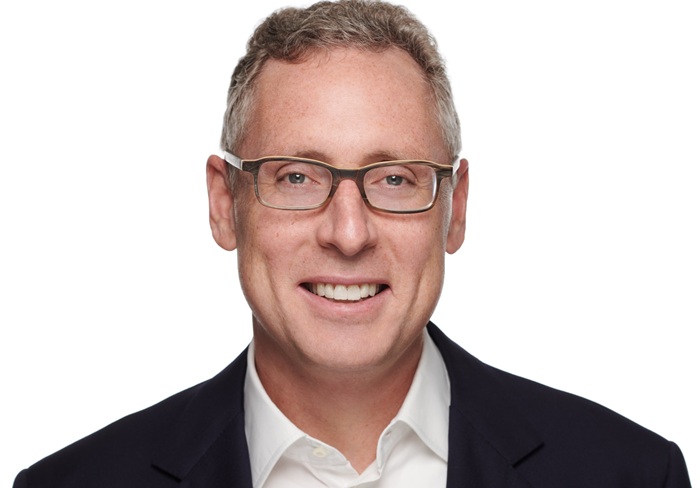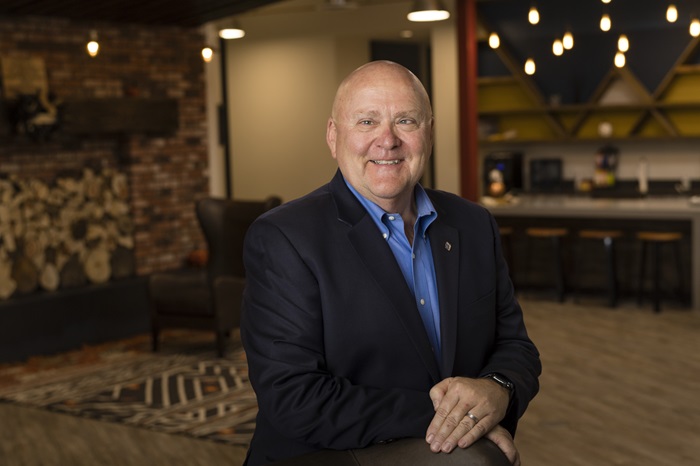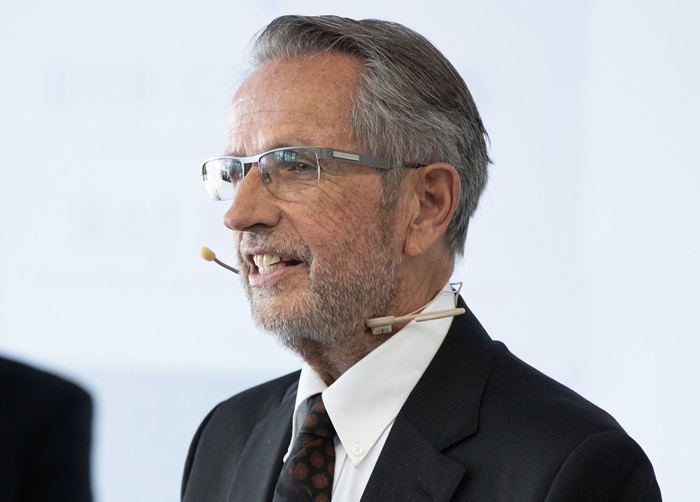The Value Proposition of Employee Ownership: A Transformative Approach to Inclusive Capitalism
By Pete Stavros | June 12, 2025 11:22 am
KKR head Pete Stavros is leading the charge toward empowering employees through a society-changing economic model.

My commitment to employee ownership is deeply rooted in my personal and professional experiences. Growing up, I witnessed the frustrations faced by my father, who operated a road grader in Chicago for 45 years and earned an hourly wage with limited opportunities for wealth-building and little incentive for productivity. I remember him lamenting the lack of a platform for workers to share their ideas and insights. This strife of the hourly worker planted a seed for my future work as an investor, both at KKR and our portfolio companies. Many of the issues my father dealt with are still reflected in the broader economy today. Most workers have no financial wealth.
Employee engagement is also a pressing concern that is bad for workers and the enterprises in which they work. According to a 2024 Gallup survey, U.S. employee engagement has sunk to a 10-year low, with only 31% of employees considered to be “engaged,” referring to their enthusiasm for and involvement with the organizations at which they work. Globally, just 23% of employees fall into this category. This leads to high employee “quit rates,” which recently peaked as high as 40% in recent years in the U.S. These factors all contribute to an economy where few participate in upward mobility.
Ownership cultures where companies extend broad-based ownership and give workers a voice can make a difference. I have been studying employee ownership since I was a student at Harvard Business School and even my earliest days on Wall Street in the 1990s. There is strong evidence that broad-based employee ownership leads to tangible benefits for both companies and workers, including increases in productivity and profitability.
The Business Case for Employee Ownership
One of the most compelling aspects of employee ownership is its dual benefit for workers and businesses. For workers, shared ownership programs offer a pathway to financial stability and wealth-building, fostering a sense of inclusion and engagement. It’s important to note that these programs are not merely about distributing shares but about creating a culture of respect, trust and collaboration. For businesses, the advantages of employee ownership are equally significant. Companies that implement these programs often experience lower quit rates and higher engagement scores, which translate into improved productivity, customer satisfaction and overall business performance.
The success of these programs starts with the leadership. It’s not just about granting stock. Leaders have to be committed to it, regularly communicate and share information and treat workers like owners. We recently partnered with Stanford professor Jamil Zaki, head of the Stanford Social Neuroscience Lab, to study leadership, specifically empathy, and we have found early results that show empathetic leaders who genuinely care about their employees are more likely to invest the time and effort needed to cultivate a thriving ownership culture. Empathetic leaders are better equipped to create inclusive cultures where employees feel respected and valued. Survey results across KKR’s portfolio showed a strong connection between business leaders who indexed high empathy and the likelihood of that individual making decisions that resonated meaningfully with workers. Our research also found that empathy is not necessarily a “fixed” trait; it can be developed through lived experiences.
To support these training efforts, KKR is experimenting with different programs designed to increase empathy, including building skills around active listening and targeted excursions focused on better understanding the needs of people in their respective communities.
Real-World Impact
Beyond the numbers, I find the emotional impact of employee ownership to be profound. I am inspired by the stories of workers whose lives have been transformed by these programs. From individuals who have overcome debt and financial stress to couples who have been able to start families, the stories of personal empowerment and generational change are truly inspiring.
One recent example that comes to mind is KKR portfolio company GeoStabilization International, which we acquired in 2018. From the beginning, KKR supported GSI in implementing a broad-based employee ownership and alignment program to increase worker engagement and allow all employees the opportunity to participate in the benefits of an ownership culture.
Throughout the six-year period as a KKR portfolio company, GSI’s employee-owners leaned into this broad-based ownership program and drove significant growth at the Company, helping to nearly triple both revenue and profits. GSI also significantly enhanced worker safety, increased its rate of delivery for customers and expanded its family of brands and services, including in complementary roadway safety services.
In October of 2024, KKR announced the sale of GSI to Leonard Green & Partners, which delivered a return of five times the original equity invested by KKR. As a result of the transaction, all of GSI’s more than 900 employees, including 550 field service colleagues, earned cash payouts on their ownership stakes in the company. The payouts ranged from three months to over three years of annual pay, with longest-tenured hourly employees receiving at least $325,000 in proceeds.
KKR’s Commitment to Shared Success
Since 2011, KKR has supported the implementation of broad-based employee ownership programs across its portfolio. To date, more than 65 KKR portfolio companies have awarded billions of dollars in equity to more than 170,000 non-senior management employees.
We first began implementing a broad-based ownership model within our Industrials private equity investments and over time expanded this program across other sectors and regions. In 2022, we made a commitment to deploy the broad-based ownership model in all control investments across our entire Americas Private Equity platform.
Key components of the program include:
- Making everyone an owner — spreading ownership to everyone in the company and treating them like an owner in the business.
- Giving workers a voice — providing key information on the business plan and performance and giving workers a voice in how the company operates and invests.
- Focusing on engagement — regularly measuring engagement, soliciting input and acting on it.
- Enhancing financial literacy — empowering employees with access to training and coaching.
We also hope to see this work expand across the industry. KKR is a founder of Ownership Works, a nonprofit organization on a mission to increase prosperity through shared ownership at work by developing and implementing broad-based employee ownership programs. Founded in 2021, Ownership Works partners with business leaders and investors to provide all employees with the opportunity to participate in the success they help create. The organization aims to increase employees’ financial security, build wealth and enhance on-the-job engagement. By fostering stronger workplace cultures, Ownership Works helps businesses improve performance and competitiveness. Ownership programs address wealth inequality by providing equity to employees beyond senior management. This approach helps build a more financially inclusive economy and reduces the racial wealth gap.
The Path Forward: Scaling and Policy Changes
While I am proud of the progress we are making in Ownership Works, I believe there is more we can do to reach more workers in the world, including public policy changes that could incentivize broader adoption of employee ownership models.
One such effort is the Expanding ESOPs initiative, a new coalition of more than 50 organizations formed to encourage more employee stock ownership at companies across the U.S by modernizing existing ESOP laws to make them more appealing to companies.
Every year, there are just 250 new ESOPs formed, which represents only about 1% of the 25,000 U.S. companies that are bought and sold every year. There is massive untapped opportunity to expand the number of ESOPS, especially for larger companies and sectors where there is little ESOP activity, such as software, media, consumer products and pharmaceuticals, to name a few. By providing clear tax incentives and reducing legal ambiguities, this initiative aims to create a more favorable environment for employee ownership to flourish. And the good news is that this idea has broad bipartisan support.
Ownership cultures are a powerful tool to unlock wealth for workers and create value in companies and their communities. But we also must recognize that it takes time and collaboration by everyone in the employee ownership community. I’m optimistic our collaboration can ensure we reach even more companies and more employees, not just in the U.S. but globally.
Pete Stavros joined KKR in 2005 and is co-head of Global Private Equity. This includes oversight of assets across Europe, Asia and the Americas and traditional large and mid-cap private equity, core and growth equity.




